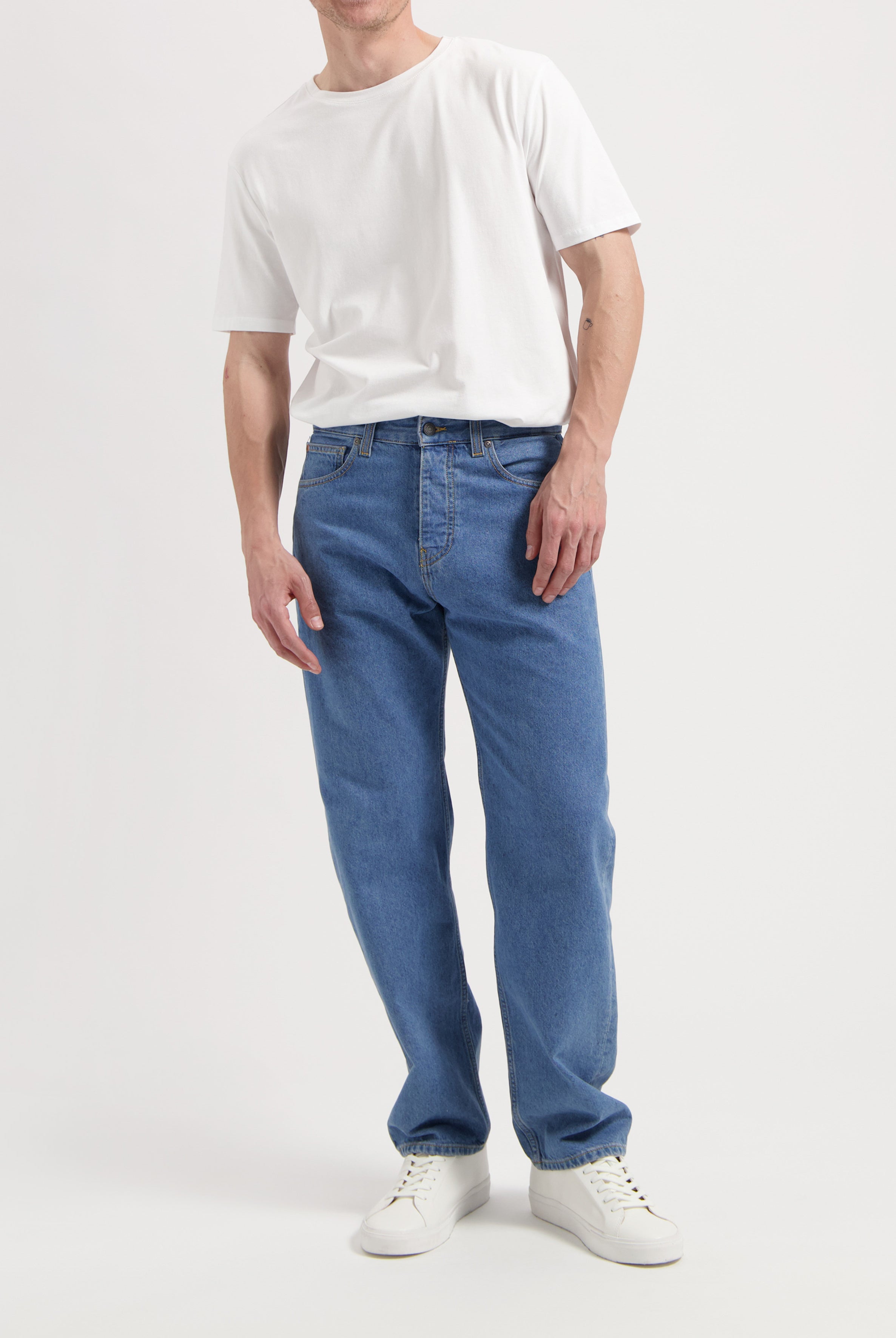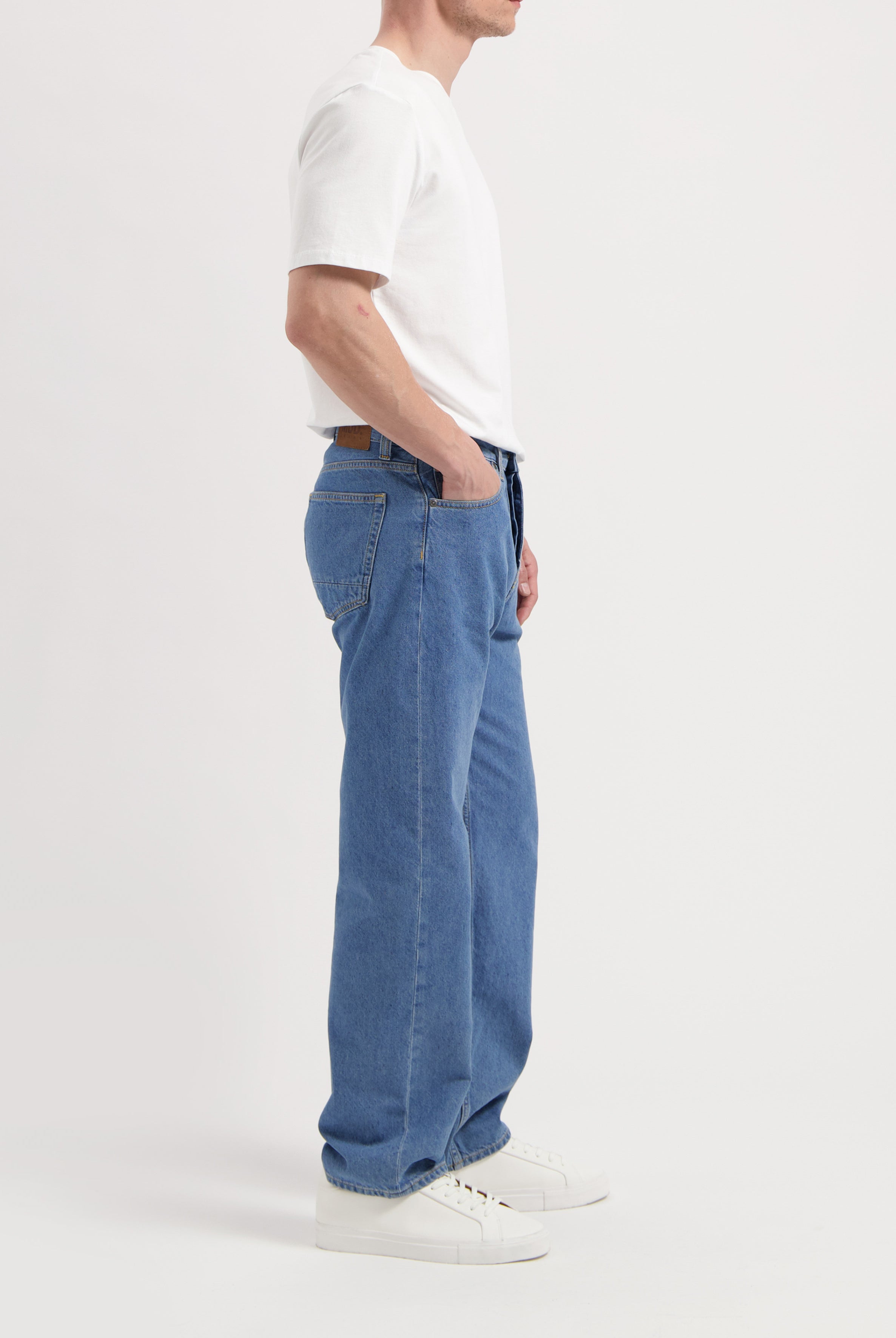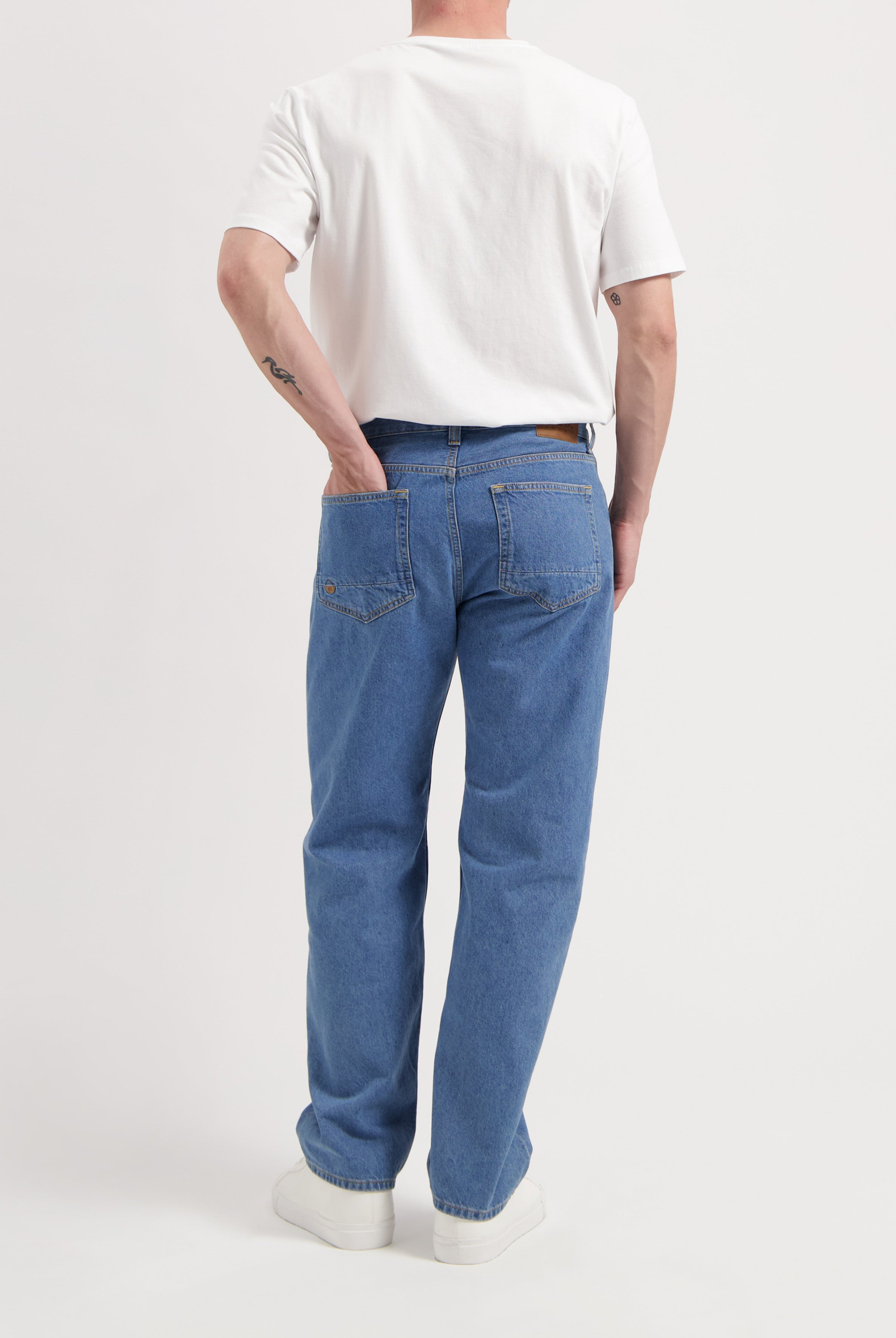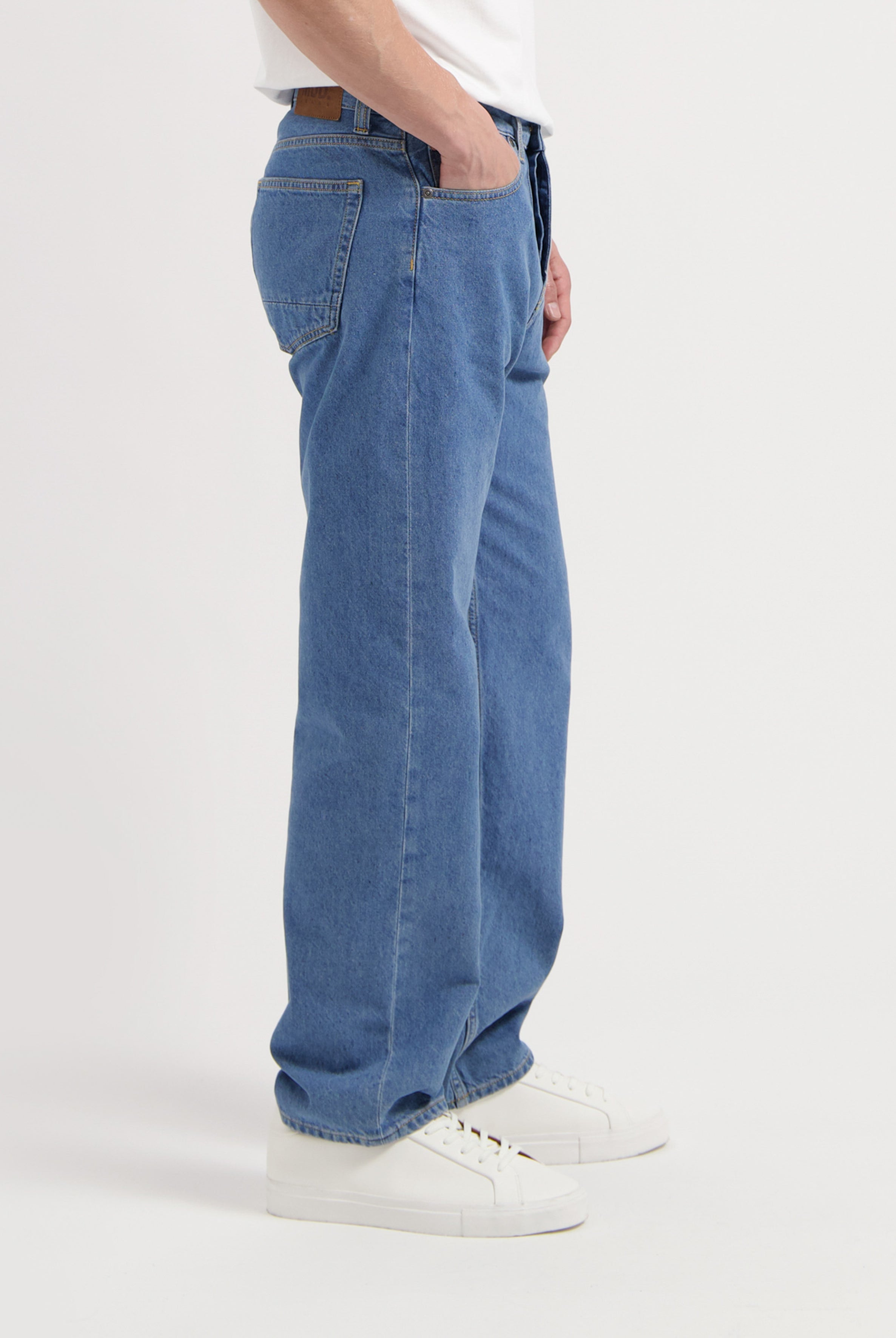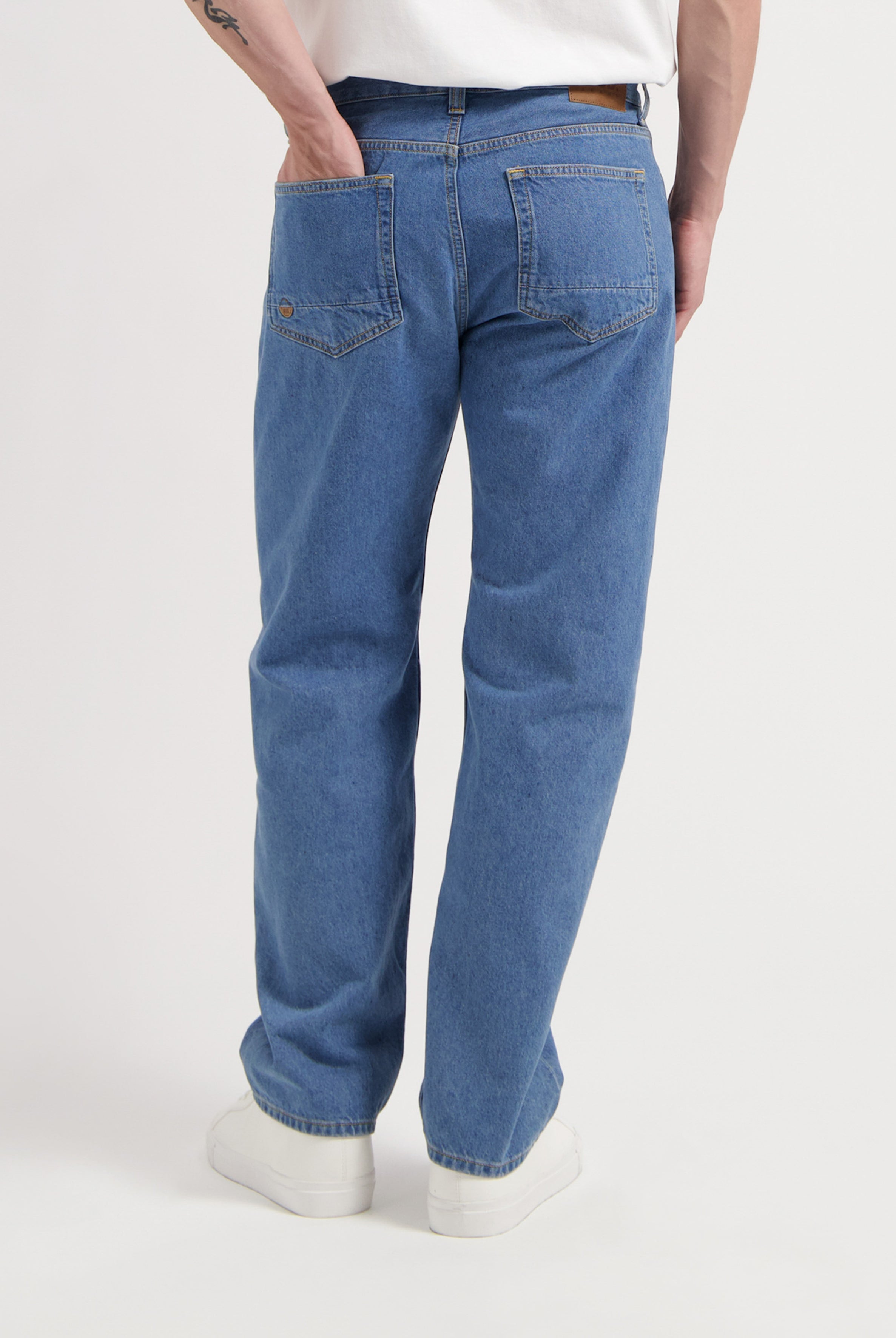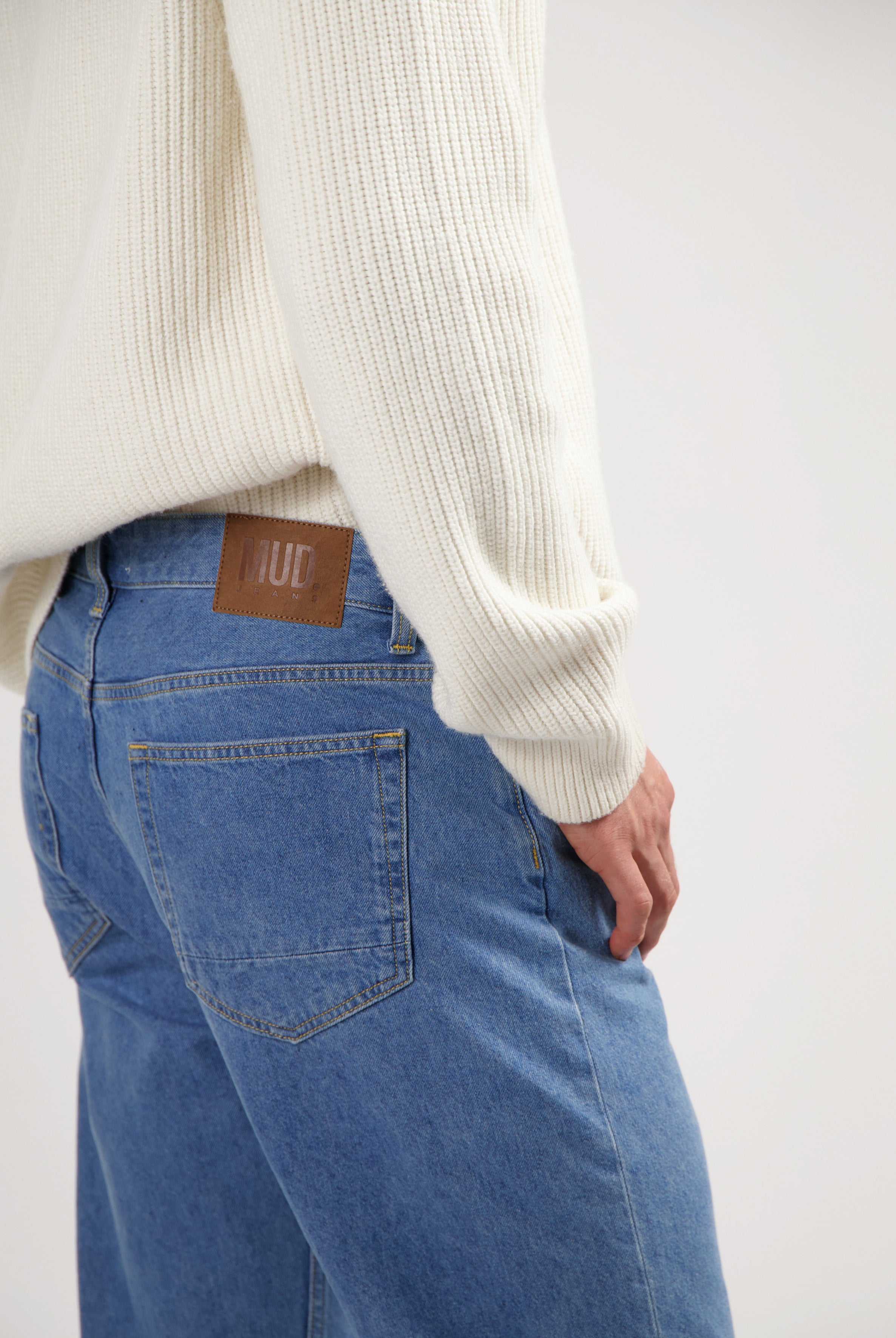How do you reduce your Ecological Footprint?
Ever heard of Earth Overshoot Day? Earth Overshoot Day marks the date when humanity has used more from nature than our planet can renew in the entire year. So, when we we have exceeded what the Earth’s ecosystems can regenerate. This year it occurred on August 1, the earliest ever since the world began to overshoot in the 1970s. Every year, this day is moving forward.

The Global Footprint Network calculates Earth Overshoot Day using Ecological Footprint accounting, which adds up society’s demand on nature, including for food, fossil fuels, buildings, roads and other infrastructure. Thirty years ago, the overshoot was on 15 October. Twenty years ago, 30 September. Ten years ago, 15 August. There was a brief slowdown, but the pace has picked back up in the past two years. On current trends, next year could mark the first time, the planet’s budget is busted in July. Reference:
The Guardian

At MUD Jeans we compensate for our CO2, we use laser and ozone techniques to dramatically cut down on water and chemicals and we use a recyclable Repack enveloppe to send our jeans. For us suatinablility is really at the core at what we’re doing, we try to take as little from the earth as possible.
We know that a large number of people are trying to #movethedate by reducing their impact on the planet for a sustainable future. It can be as simple as turn off your lights, switch to a plant-based diet, only buy sustainable fashion.
Friends of the Earth have identified some more tips to use fewer natural resources:

1
Single use coffee cups are not only a leading cause of plastic pollution, but also a massive drain on natural resources. Grab a
reusable coffee cup for your morning caffeine kick or have a little “me time” and sit down with a drink-in coffee before heading to work. Many cafes are now offering discounts for customers with re-usable coffee cups, so you’ll soon find yourself saving money as well as the planet.
2
Hold fire on that phone upgrade. Many of us like to keep ahead of the curve when it comes to upgrading our phones, tablets and other gadgets; but these can involve the mining of up to 40 different elements such as cobalt from Africa, copper from Chile and aluminium from Australia. By keeping each smart phone for longer you will use far few
natural resources.
3
Be retro and switch to a bar of soap in the bathroom. The selection is vast but make sure you get one you like, because they will last for ages. That change alone will likely save a large box worth of plastic packaging (not all of which can be recycled) each time you buy soap. More
plastic-crushing tips.
4
Eat less meat. Livestock production causes nearly 15% of all climate-changing gases. And it uses loads of precious fresh water. If you cut down on meat you could save tonnes of carbon, spend less money on the weekly food shop, and have a healthier diet. What are you waiting for?
5
Learn simple fixes for your clothes. Simple maintenance and repairs of our clothes will make them last infinitely longer. That will save you money on buying replacements and ensure that the material doesn’t go to waste.


What do you do te reduce your footprint? We’d like to hear from you! We love to share stories of people that try to live a little more conscious. We like to hear how people can be creative in finding sustainable solutions.
So, if you have a story to share, or know a person we should contact, please connect:
marketing@mudjeans.eu.

 The Global Footprint Network calculates Earth Overshoot Day using Ecological Footprint accounting, which adds up society’s demand on nature, including for food, fossil fuels, buildings, roads and other infrastructure. Thirty years ago, the overshoot was on 15 October. Twenty years ago, 30 September. Ten years ago, 15 August. There was a brief slowdown, but the pace has picked back up in the past two years. On current trends, next year could mark the first time, the planet’s budget is busted in July. Reference: The Guardian
The Global Footprint Network calculates Earth Overshoot Day using Ecological Footprint accounting, which adds up society’s demand on nature, including for food, fossil fuels, buildings, roads and other infrastructure. Thirty years ago, the overshoot was on 15 October. Twenty years ago, 30 September. Ten years ago, 15 August. There was a brief slowdown, but the pace has picked back up in the past two years. On current trends, next year could mark the first time, the planet’s budget is busted in July. Reference: The Guardian
 At MUD Jeans we compensate for our CO2, we use laser and ozone techniques to dramatically cut down on water and chemicals and we use a recyclable Repack enveloppe to send our jeans. For us suatinablility is really at the core at what we’re doing, we try to take as little from the earth as possible.
We know that a large number of people are trying to #movethedate by reducing their impact on the planet for a sustainable future. It can be as simple as turn off your lights, switch to a plant-based diet, only buy sustainable fashion. Friends of the Earth have identified some more tips to use fewer natural resources:
At MUD Jeans we compensate for our CO2, we use laser and ozone techniques to dramatically cut down on water and chemicals and we use a recyclable Repack enveloppe to send our jeans. For us suatinablility is really at the core at what we’re doing, we try to take as little from the earth as possible.
We know that a large number of people are trying to #movethedate by reducing their impact on the planet for a sustainable future. It can be as simple as turn off your lights, switch to a plant-based diet, only buy sustainable fashion. Friends of the Earth have identified some more tips to use fewer natural resources:


 What do you do te reduce your footprint? We’d like to hear from you! We love to share stories of people that try to live a little more conscious. We like to hear how people can be creative in finding sustainable solutions.
So, if you have a story to share, or know a person we should contact, please connect: marketing@mudjeans.eu.
What do you do te reduce your footprint? We’d like to hear from you! We love to share stories of people that try to live a little more conscious. We like to hear how people can be creative in finding sustainable solutions.
So, if you have a story to share, or know a person we should contact, please connect: marketing@mudjeans.eu.







